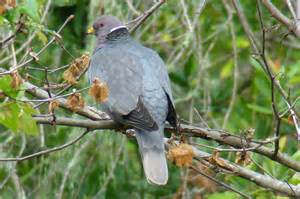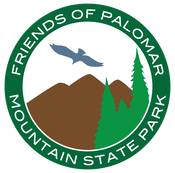Palomar's Band-Tailed Pigeon
|
|
The name "Palomar" comes from Spanish-speaking times, when Palomar Mountain was known as the "home of band-tailed pigeons". Thus the name Palomar, meaning "pigeon roost", from the Spanish word "paloma", for pigeon or dove.
Here are some interesting facts about the Band-Tailed Pigeon:
1 http://www.allaboutbirds.org/guide/band-tailed_pigeon/id 2 http://identify.whatbird.com/obj/161/_/Band-tailed_Pigeon.aspx 3 http://news.nationalgeographic.com/news/2004/08/0831_040831_birdman_pigeon.html 4 http://www.birdsamore.com/byb/pigeon-band-tailed.htm 5 http://audubon2.org/watchlist/viewSpecies.jsp?id=22 6 http://www.evols.org/mediawiki/index.php?title=Band-tailed_Pigeon 7 http://www.thefreedictionary.com/band-tailed+pigeon 8 http://www.birdinginformation.com/birds/pigeons-and-doves/band-tailed-pigeon/ 9 http://www.amazon.com/Band-Tailed-Pigeons-Wilderness-Bird-Risk/dp/0881927120 |

